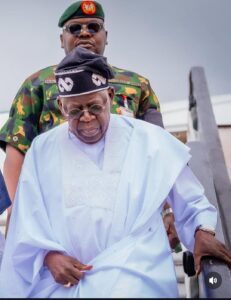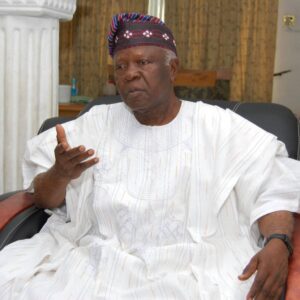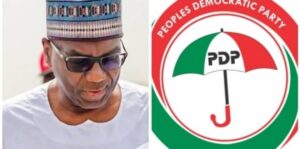PMB: REDEFINING THE SANCTITY OF EMPOWERMENT PROGRAMS By Ogheneovo Edewor
As the prognostics for the 2019 general elections become more
definite, the problem occasioned by the power of choice bodes the
electorate, away and astride the parameters of political permutations,
and into the calculation of potential and fact based projections. The
16 year absence of a viable alternative during the PDP era has
occasioned the short temperamental notion of not a few Nigerians
towards the efforts of the President Muhammadu Buhari led APC Federal
Government, however where there may be hasty judgment on the
government of the day, the onus lies with progressive minds to always
make it a point of order to elucidate on the sharp contrast between
what the PMB administration offers and what was obtainable during the
Obasanjo/Atiku, Yar’adua/Jonathan/Sambo led PDP Administrations.
For the purpose of responding to the expectations of the masses,
specific gestures targeted at providing immediate respite and
creating a sense of belonging within the poor and low income earners.
The configuration of Nigeria has occasioned a higher percentage of its
population to fall within the low income earners category, therefore
in the event where schemes targeted at stimulating the economy are
initiated, conscious efforts are required to make it far reaching and
tangible. The articulation and implementation of the Empowerment
schemes of the PMB led administration when compared with the
disposition of preceding administrations towards masses welfare, gives
the conviction of a more sincere and responsible government.
The Naional Social Investment Programmes (NSIP) initiated by the
present administration to integrate the vulnerable population,
including youths, children and women; tackle hunger and by extension
see to the equitable distribution of the nation’s patrimony, has seen
the redefinition of the concept of empowerment to a more realistic
prominence. Statistics available show that the NSIP since its flag off
in 2016, has so far touched over 6 million Nigerian lives spread
across the 36 states of the federation, therefore by this estimation
it has become the most impactful scheme designed, inaugurated and
implemented by a Federal Government Administration in Nigeria.
Structured into the schemes designed to reach every bracket of
society, the NSIP is divided into – Home Grown School Feeding
Programme (HGSF), N-Power, Conditional Cash Transfer (CCT) Programme
and Government Enterprise and Empowerment Programme (GEEP), with each
scheme already boasting of a reach that has afforded millions of
Nigerians a taste of what the nation can offer.
The Home Grown School Feeding Programme (HGSF)) since its
implementation began in 2016, has ensured that at least a people is
assured of a meal per day. Coming to terms with the rampant
mismanagement of public funds by the past administration coupled with
a high level of lip service attention to the demands of innovative
leadership, the Home Grown School Feeding Program has opened the eyes
of Nigerians to alternative means of human resource investment.
Figures from the coordinating office in charge of the scheme puts
beneficiaries at 7.6million children spread across the Six
geopolitical Zones and 36 states of the federation. Furthermore, the
incidence of malnutrition is being addressed through the
implementation of the HGSF Programme.
The N-Power Scheme designed as part of the NSIP with the aim of
assisting and equipping young Nigerians between 18-35 years of age
with lifelong skills and abilities to ensure their viability and
preparedness for challenges occasioned in the global market. With
harsh economic realities that greeted the nation from early 2014 which
further complicated the rising unemployment ratio brought about by
lack of a proper means of engaging graduates and semi skilled young
adults into the cycle production in the country by preceding
administrations, the innovation of the N-power graduate scheme and its
implementation has empowered otherwise disadvantaged young adults and
equipped them with technological aids that will prove advantageous in
the rapidly evolving tech trends in the world. This scheme requires
little from youths who desire participation and entails training of
applicants in areas of their choosing, with a stipend of #30,000 paid
to successful beneficiaries. At the last count over 300,000 successful
have been absorbed into the employment of the federal government, with
another over 500,000 already trained and equipped, awaiting
absorption.
The Government Enterprise and Empowerment Programme (GEEP) another
aspect of the NSIP, is structured to offer micro-lending options of
between 10,000 to 100,000 naira to artisans, petty traders,
enterprising youths and women in particular. One of the innovation
from this scheme includes the TraderMoni initiatives. This initiative
is primarily targeted at empowering market women and petty traders
with as little as #10,000 loans with which they are to invest into
their business for more profit. These petty traders fall into the
category of those low income earners that live within the means of
their little yields in business. The scheme portrays the soft spot
that is held for our mothers in the markets, who prove vital in making
available fresh farm produce for immediate consumption. Many of these
women use capitals not more than #5000-#10,000 in setting up their
ventures, therefore loans of #10,000 guarantees double profit at
little to no extra cost. Talk about giving a sense of belonging to the
market women, petty traders, artisans all around us and we aren’t in
doubt of the committment from the present administration, as it stands
today a figure of over 800,000 traders nationwide spread across
markets like Ketu, Abule-egba, Owerri, Utako District, Oshodi, Nyanya,
Iwo, etc are already recorded beneficiaries of the scheme.
From the foregoing and with a clear choice to make as the 2019
elections draw closer, placing Alhaji Atiku Abubakar and President
Muhammadu Buhari side by side in comparison and assessment before the
electorate should come with less dilemma. We are fortunate to have
both personalities as political leaders with traits and patterns in
the fourth republic, and therefore owe ourselves a critical assessment
of antecedents, participation and disposition of the two figures
towards the welfare of the average Nigerian. From 1999-2007 as Vice
President. the PDP Presidential Candidate in retrospect, fell short of
proving a commitment to uplifting the masses and establishing them in
the little but Far-reaching way that President Muhammadu Buhari’s
administration has exemplified. The decision in 2019 is largely
affected by the noticeable performance and maturity recorded by the
PMB administration and confidently today Nigeria can be said to be
accelerating towards sanctity and perfection.
Chief Ogheneovo Edewor is a Chieftain of the All Progressives Congress
APC, Founder of The Chief Ovo Edewor Foundation, and the Grand Patron
PMB Door To Door Movement, Delta State Chapter.
He writes from Warri, DFelta State







